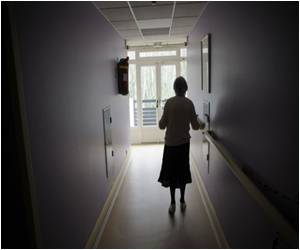At the Regenstrief Institute and the Indiana University Center for Aging, research has found that many family caregivers of older adults with dementia are willing to consider stopping cancer screening of the elderly individual; they are also relieved when the older adult's physician brings it up.

The researchers conducted focus groups with caregivers -- from urban and suburban settings in one Midwest metropolitan area and of differing socio-economic status -- attending support meetings for family members of dementia patients. The investigators found that caregivers' concerns about cancer screening for older adults with dementia targeted four areas:
- Quality versus quantity of life.
- Burdens placed on the patient and caregiver by the screening.
- How to end screening.
- Variability of physician expertise on the risks and benefits of screening for this population.
"As dementia progresses, caregivers must take over the process of medical decision-making," Dr. Torke said. "Prior to our study, little had been known about how decisions to continue or stop screening are actually made by caregivers of family members with dementia, or if caregivers' perspectives on cancer screening were as positive as previous studies have found in other populations, including older adults."
For example, the perspective of the caregivers, who mostly favored forgoing cancer screening for older adults with dementia, differs from the perspective of older adults without cognitive impairment. A previous study conducted by the authors of this study found that adults who were not cognitively impaired viewed cancer screening as an automatic, recommended or obligatory action.
The researchers report in this new study that caregivers of people with dementia are not only willing to consider stopping cancer screening, many are relieved when physicians bring it up. Caregivers are most open to discussions of screening cessation when these discussions focus on quality of life and burdens and benefits for the person with dementia.
One caregiver said, "I was concerned about her quality of life and making sure that she was very, very comfortable, and I think that means more than putting people through a lot of unnecessary, uncomfortable … procedures. … It's not going to make the person better. It might make them linger on, but are you really living?"
Advertisement
The caregivers, men and women ranging in age from 49 to 85, were primarily spouses or children of older adults with dementia.
Advertisement
Source-Eurekalert















